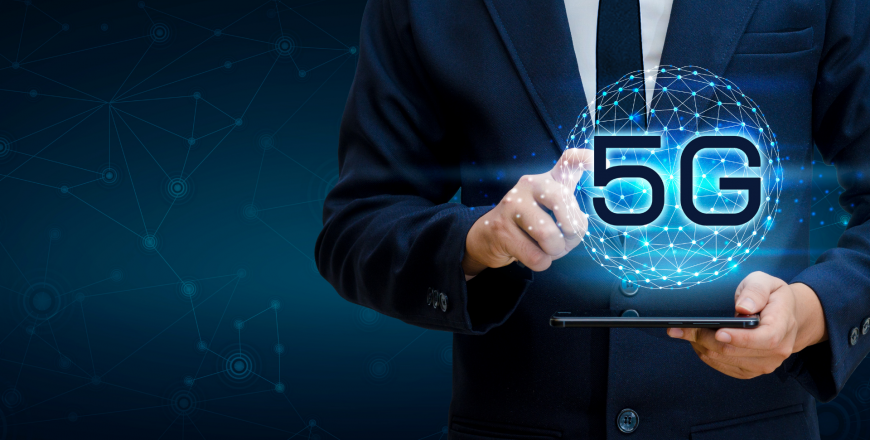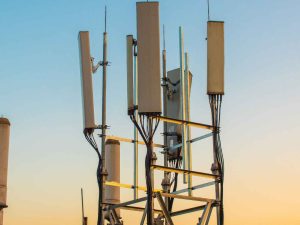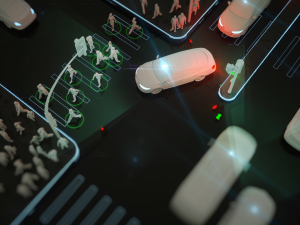Introduction to 5G Technologies and Applications

Course Overview
The advent of 5G has made a major impact on many industry sectors and transformed the way we live, work and do business. This course provides participants with an introduction to 5G technologies, system architecture and the various services and applications that are now made possible by 5G.
By attending this course, participants will understand how this next generation of mobile technology, with features such as Enhanced Mobile Broadband (eMBB), Ultra Reliable Low Latency Communication (URLLC) and Massive IoT (mMTC), is set to radically re-shape today’s mobile communications and business landscape.
Target Audience
This course is designed for professionals who are interested to understand 5G technologies and its use cases.
- Technical Strategy Officials
- C-Level Decision Makers & Executives
- Regulators
- Engineers and Managers involved in the digital automation projects and wireless projects
- Project Managers
- IP Engineers
- Technical Product Managers
- Technical Product Marketing Professionals
- Finance Executives
Duration & Training Format
- Classroom: 3 days
- LIVE Virtual*: 15 hours
- A minimum of 6 or more participants are required for a company-based LIVE Virtual course to commence
- LIVE Virtual courses can be conducted for 5 hours or 7 hours daily. Please note that the number of training days will be extended if you opt for 5 hours daily.
Upcoming Course Dates
4 – 5 Dec 2023 (Mon – Tue), GMT +08:00
If you are keen on attending the above scheduled course, please register your interest via our course enquiry form.
Course Outline
1. Introduction to 5G Wireless Communications
- Why 5G?
- 5G as a Technology Vision
- 5G Features
- 5G Technologies and Objectives
2. 5G Requirements and Specifications
- 5G Requirements
- The 10 Pillars of 5G
- Capacity Increase
- Bandwidth
- Spectral Efficiency
- Variety of Services and Applications
- Variety of Device Types
- Power Consumption
- Disruptive Network Technologies
- Resilience of the Network
- Pervasive Networks
- Internet of Things (IoT) and Device-to-Device Communication
- Ubiquitous Connectivity and Computing
- 5G Vision
3. 5G Standardization
- 3GPP Evolution and 5GPP
- 5G Infrastructure PPP
- IEEE
- Horizon 2020 Framework Programme
- METIS Project
- 5G Innovation Centre
- Visions of Companies
- 5G in Europe, North America and Asia
- 5G Architecture
4. 5G Mobile Networks
- Heterogeneous Networks and Small Cells
- Capacity Limits
- Densification
- Mobile Data Demands
- Demand vs. Capacity vs. Delay vs. QoE
- Co-Operative Networks
- Diversity and Relaying Strategies
- PHY and MAC Layer Protocols
- Deployment and Performance Evaluation
- Cognitive Raddio
- Dynamic Spectrum Optimization
- Multi-technology and Multi-tier Carrier Aggregation
- Energy Efficiency
- White Spaces for 5G
- 5G Broadcast Broadband Architecture
- SON Evolution for 5G
5. Mastering Network Virtualization
- Why Virtualize – Can you Live with Legacy + Modern
- NFVI and VIM
- Dissecting Private and Public Cloud Environments
- Open Source – ONAP, OSM, CORD
- DevOps and NetOps
- Hybrid Operational Models
6. Security for 5G Wireless Communications
- System Architecture
- Potential Security Issues
- User Equipment
- Access Network
- Core Network
- IP Network
7. IoT – IIOT, CIoT, IoE
- Information Blast
- Million IoT standards
- Practical IoT Architecture, Interfaces, Layers
- Transfer and Security
- Devices and Management – NB IoT, LTE M, Cat M1
8. 5G Operational Scenarios
- 5G Implementation Roadmap
- Capacity and Performance
- 5G Evaluation Tools and Testbeds
- Examples of 5G Scenarios and its Technology Components
9. Edge Computing
- Standardization and Overview
- MEC Application Enablement Framework
- MEC Services
- MEC Deployment Options in 3GPP 5GS
- CUPS and Common API Framework
- MEC Impact on existing Operational Systems
10. Case Studies
- Factory Automation
- Smart Warehouses
- Smart Cities
- Enhanced Autonomous Transport V2X – Vehicle Telematics
- Mining and Oil and Gas Automation
- Ports
- Stadiums
- Remote Control Centres
- Accelerated Real-time Gaming
- Collaborative and Mobile Robots
- Video Surveillance and Security
- 5G First Responders
- Emergency Management with Drones
- COVID Solutions
Note: A Certificate of Completion will only be issued upon achieving at least 75% attendance for the course.
Pre-requisites
- Basic knowledge of wireless technologies
- Basic understanding of IP-based communication
- Some understanding and Experience with IT infrastructure (i.e. Ethernet, Switches, Routers) vulnerabilities of 5G
- Recognize the security measures required for 5G



